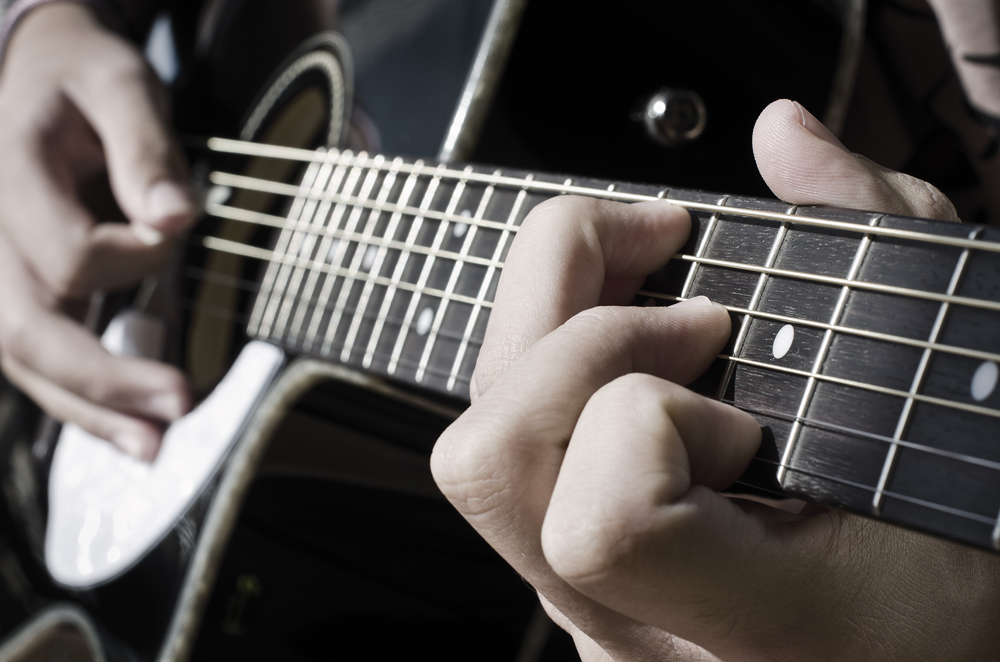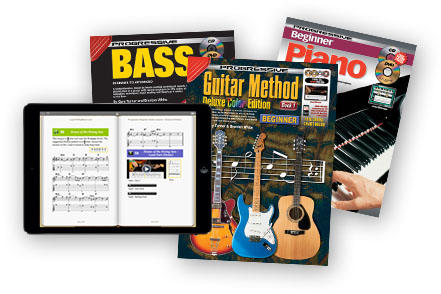A very common question beginning guitarists often ask is:”is it important to learn guitar scales?” The short answer is YES!
Scales are the building blocks of music, as they are the tools for improvisation but also composition. Scales are not just used for single note solos or lead playing, finding which chords sound good together is also based on the knowledge of scales. Ultimately, we have to look at music as a whole and not think of scales and chords as separate items.
Again, if we think of music as a story, then think of the notes of a scale as the words with which we make sentences and paragraphs.
All music and all musical ideas are derived from scales, therefore it is very important to learn and practice guitar scales. Scales are an invaluable tool for all musicians to know and master for several reasons:
Chords/Composition
Chords are derived from scales. They are built from the notes in the scale. A simple C major scale with the notes C D E F G A B can give us chords when we stack every other note (or thirds). For example if we take C, E and G (the first, 3rd and 5th notes) we get a C major chord, if we take G, B, and D we get a G major chord. Starting at A and skipping every other note we get A, C and E which form an A minor chord. Doing the same thing starting on F we get F, A and C, which is an F major chord.
So these four chords which are derived from the C major scale yield the following very famous chord progression:
|| C | G | Am | F ||
The reason that these chords sound good together is because they are all derived from the same C major scale which can then in turn be used to improvise over this chord progression.
Practicing scales
A lot, if not all technical problems can be solved by practicing scales, slowly and deliberately. It will strengthen your fretting hand AND build coordination between both hands. This will allow you to move between chords or scale patterns more easily. Practicing scales can be thought of as one of the ways to visually and physically organize and get to know your fretboard well.
This in turn will greatly enhance your ability to improvise and to concentrate on other aspects of your playing or performance e.g., tone, dynamics, phrasing, rhythm and expression because you will have the scales and patterns under your fingers. It will free you up to focus on creative things instead of guessing if the next note will sound good or not. It will enhance your creativity.
Creativity
When learning the licks and ideas of other guitar players you can increase your soloing vocabulary faster because you can actually “see” the licks you’ve learned in the scale patterns and chord shapes on the fretboard. It will then also be easier to add your own ideas to these. Instead of just “inserting” the licks you’ve learned, parrot fashion, when improvising; through scale practice, and learning to disassociate a lick with a song or chord progression you can, for instance, move the lick around over the fretboard in different keys and improvise around them. This will make your improvisations better.
Improvisation
By learning and practicing scales we develop the ability to mix scales together. Mixing scales is very useful and can give a nice texture to a solo. Combining scales to make solos more interesting of course requires that you develop the ability to visualize and play more than one scale at the same time. In harmonically more advanced music styles such as jazz, often a different scale is used on each chord in a progression. A thorough knowledge of scales and chords and their relationship is then most definitely required.
In summary
Scales will lead to a greater understanding of music. The ability to know and understand the relationships between single notes and chords will lead towards better composition and songwriting. Practicing scales enhances finger technique and because the hands are synchronized, better rhythmic soloing. This increases the knowledge and ability to play various melodies over the right chords at the right time.
Learning and practicing scales is invaluable and will lead you to complete mastery of the guitar faster.
About the Author
Daniel Coffeng is an honors graduate from the Guitar Institute of Technology and is a Los Angeles, CA based performing guitarist, freelance studio musician and music educator specializing in modern contemporary guitar.
– Continue learning with Learn To Play Music at LearnToPlayMusic.com






























Kudo’s on your easy to understand explanation concerning scale / chord relationship, even a novice like myself could understand.
This is my first visit to your site, saw the FaceBook add and decided to check you out. My main instrument is Bass, however I play a little guitar too.
Peace ane One Love,
James A. Gaskins
Aka – Cisco Kid
Hey, This is a fantastic overview, I located your web blog checking google for a similar topic and found this. I couldnt find too much other information and facts on this posting, so it was wonderful to find out this one. I am going to probably be returning often to check out various other articles which you have written another time. Have you ever pondered blogging for money? you are quite good at it.
Let me ask..why don’t you just learn chords instead of learning scales. Anyway chords are derived from scales right?
Hi Ivan, yes that’s correct – chords come from scales. It’s important to have an understanding of scales as they are the basis for everything you will play – not only chords but the melody (lead parts) as well.
I’m a semi-novice guitar player and it took me a very long time to understand the importance of scales, beyond the admonition “you must practice your scales!” As someone who really prefers lead over rhythm, and just wants to improvise and noodle away an afternoon, it would have been a godsend if my first couple of instructors had clearly explained to me that one can play the notes in scales in any sequence that feels/sounds good, it would have been so wonderful. Fortunately, I now have that figured out and I am having a blast.